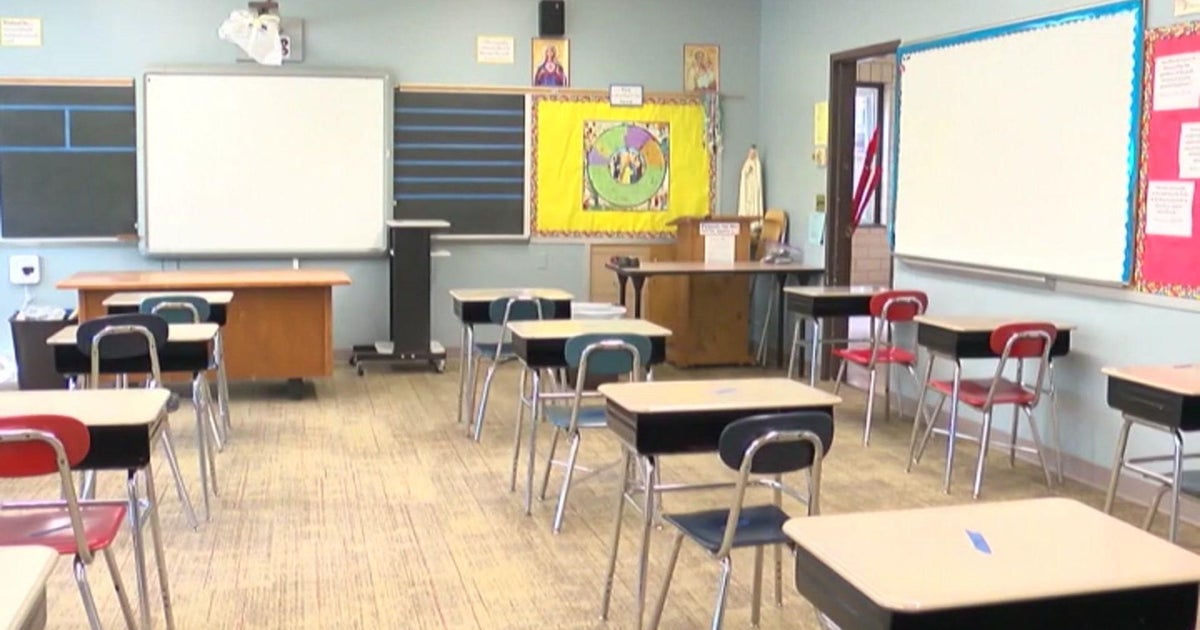Texas schools trying to fill mental health professional shortage gaps with telehealth & teen court programs
DALLAS (CBSNewsTexas.com) - Three out of every four Texas children with depression don't receive any mental health treatment, according to Mental Health America. Pair that with the severe shortage of mental health professionals in Texas schools and the picture is clear. Texas students are not getting the mental health help many desperately need.
Dylan Crow's struggles with mental health started when he was 15 years old, a freshman in high school. Crow said he was feeling depressed, suicidal, and started having hallucinations. He was eventually diagnosed with schizoaffective disorder – a mental condition with symptoms of bipolar disorder and schizophrenia.
"I was scared because it wouldn't go away," Crow said. "I didn't know what was going on."
Over the course of five years, Crow attended five different high schools with long stretches in-between at mental health facilities. Crow said every time he attended a new school, there wasn't the help he needed until he went to Linda Tutt High School in Sanger, a public school that emphasizes mental health.
"Without this school I don't think I would be alive," Crow said. "Other schools tried to have the resources but there are just so many kids … I know this sounds hard to do but maybe they could hire more counselors."
According to American School Counselors' Association, for every 10,000 students there needs to be 40 counselors. In Texas schools, according to Texas Education Association staffing data, there's 25.
The National Association of School Psychologists recommends for every 10,000 students, there needs to be 20 school psychologists. According to T.E.A. data, in Texas schools there are less than 4.
Outside of school, finding mental health help in Texas is often just as difficult. Eighty percent of Texas counties are designated as mental health professional shortage areas.
"I'm not sure if we'll ever get to where we don't have any mental health care worker shortage in Texas," said Dr. David Lakey, the head of the Texas Child Mental Health Consortium.
Lakey said one way the state is trying to make sure all students get the mental health help they need is by offering telehealth services through the Texas Child Health Access Through Telemedicine (TCHATT) program.
Started in 2019 in response to the Santa Fe High School shooting, TCHATT is now in more than 600 school districts across the state and has been used by more than 20,000 students – many who otherwise might not have had any access to mental health services.
"The standard waiting period to get into to see a child/adolescence psychiatrist in the state of Texas is about six months. We are able to get these services to kids right away," Lakey said.
Despite the state offering TCHATT services for free to Texas schools, nearly 400 school districts have still not signed up for it.
Lakey told the CBS Texas I-Team he is concerned about those districts but added the state is working to educate school officials on the benefits of the program and expects more to enroll as they see how the program is implemented in other districts.
Even in districts that have enrolled in TCHATT, local school officials say the state program alone can't solve all the issues caused by the mental health professional shortage. So, many districts are looking for additional solutions.
In Sanger ISD, a small rural district about 60 miles north of Dallas, school officials this year will launch two new programs – a teen court program at the high school and a peer-to-peer mediation program at the middle school.
Ann Hughes, the district's director of emotional behavior and student intervention, said the new programs will help teach students to resolve minor problems themselves and thus free up the schools' counselors and mental health professions to work with students with bigger needs.
"We need more of the situations to be resolved peer to peer in a structured manner, in a healthy manner, than always having to have adults come in to do the solving for them," Hughes explained. "Having those programs will also open the door for counselors to spend a lot more time on the really involved students who need more professional guidance."
Hughes, who has worked with Sanger ISD for 23 years, looks for new ways every year to improve students' mental health. One year, she started a student-run free grocery store. Another year, she turned traditional classrooms into a stress-reducing "movement" and "chill" rooms.
These efforts have helped students, like Dylan Crow, who is set to graduate from high school in the spring.
"We have to do what we can with what we have," Hughes said. "That's just the reality of any profession. And then we need to try and find ways that are creative and innovative to meet the gaps."
If you or someone you know needs any kind of mental health support, you can call or text the National Suicide Prevention Lifeline at 988 or chat online with a counselor at www.988lifeline.org.







